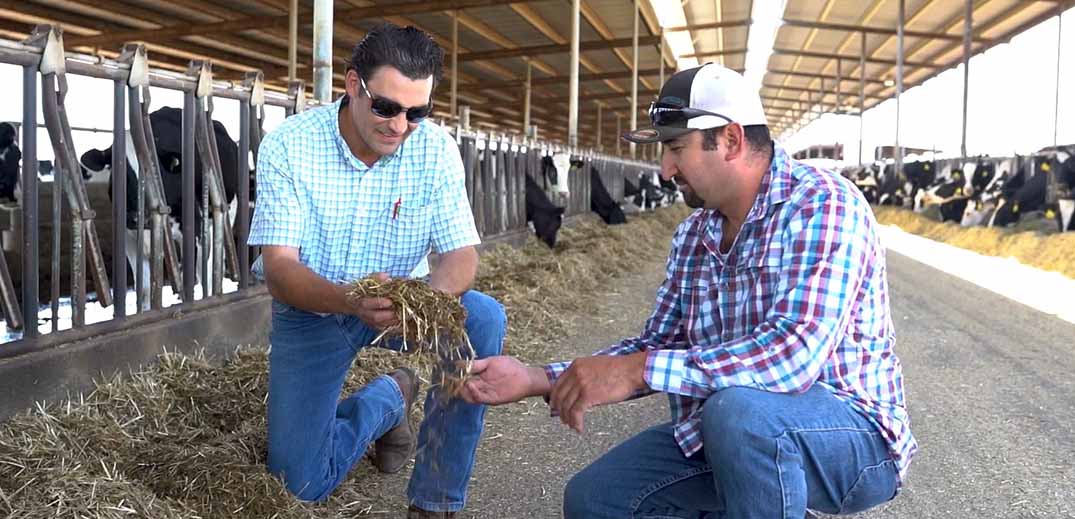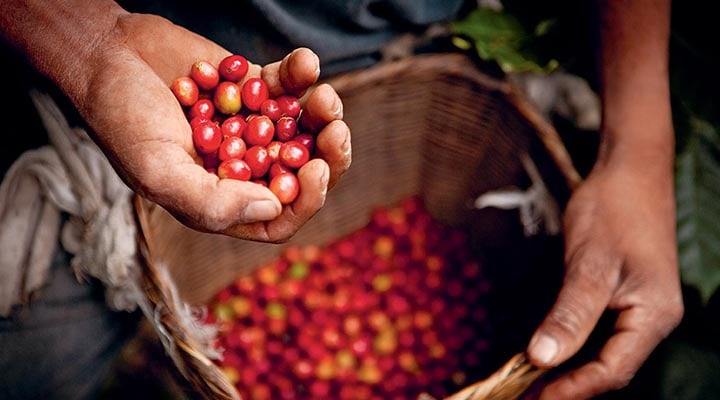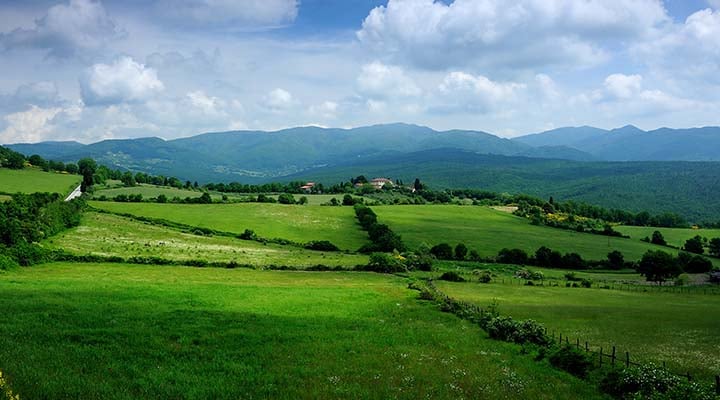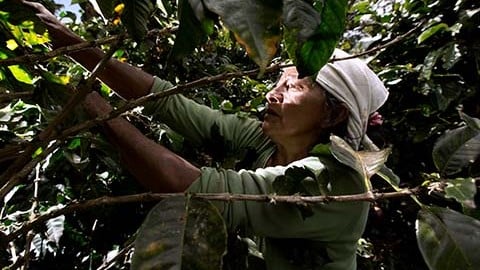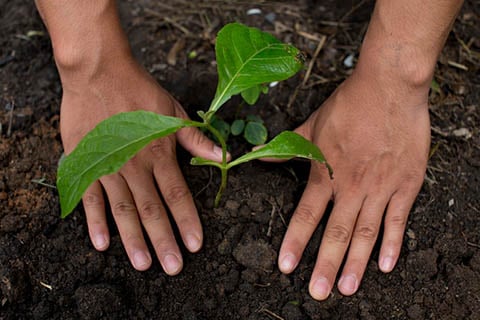Our Vision: A net zero future for dairy farming

Our vision is that the future of the dairy industry can be Net Zero.
We're doing our bit to help transform the dairy industry around the world, by working hand-in-hand with farmers to chart a new course. Our efforts have already taken us from South Africa to the United States to Germany.
Focusing on scaling climate-smart agriculture initiatives is crucial for our journey toward net zero greenhouse gas emissions by 2050, and will help reduce the carbon footprint of many of our products. For instance, in the U.S., we're collaborating with the nation's dairy industry including through our suppliers who contribute to the industry's transformation.
USA: evolving an industry
We joined the Innovation Center for U.S. Dairy's Net Zero Initiative in June 2021 to support dairy farmers across the country. Together, we support the implementation of new technologies and the adoption of environmental practices that we expect will also be economically beneficial. The aim is for the industry to achieve net zero carbon emissions, while optimizing water usage and improving water quality by 2050. These actions will play a major role in moving our brands like Carnation along in their sustainable ambitions.
American farmers in our supply chain are already on-board, like Jon Rebeiro, farm manager at Trinkler Dairy, which was our first net zero demonstration farm in the U.S. "Today on the farm, we use a lot of sustainable practices, all of our manure that's produced by the cows is either used to fertilize crops or it's dried and used for bedding."
Germany: practical solutions to help reduce emissions
As in the U.S., on the farms we partner with in other countries, there are a range of practical solutions undertaken as part of our net zero effort. For example, cow manure is recovered to efficiently and effectively fertilize crops through nutrient recovery. Methane, a potent greenhouse gas, can be captured through state-of-the-art technology, or reduced by improving cows' diets. The water produced on farms is used to irrigate crops or is recycled back into the process through a sprinkler system used to cool the cows.
These practices are central to the Frese family's 220-hectare farm in northern Hesse, Germany, which is the most recent pilot and first Nestlé 'climate dairy farm' in Germany at the end of 2021. Over a period of three years, Nestlé Germany will support the farm and its 135 cows in their journey towards net zero. The farm is run by its long-standing supplier Hochwald, which supplies, among other things, the mozzarella cheese for Wagner pizzas.
"With our 'climate dairy farm' we are doing fundamental research and learn what levers there are for dairy farms in Germany to switch to significantly lower emissions. The results of our pilot farm, including costs, will be groundbreaking for other farmers. Ultimately, the ingredients that are supplied to us will also have a smaller footprint," explains Corinna Weinmiller, Sustainability Manager at Nestlé Germany.
South Africa: pioneering self-sufficiency
We also launched a dairy pilot in George, South Africa on the Skimmelkrans farm. At Skimmelkrans, like in the two other farms, cow manure is collected, pressed and separated into solids and liquids. The solids are released into the soil as compost, and the liquids into the pastures as irrigation, meaning less methane is released into the air.
Skimmelkrans operates in a diverse ecosystem: from releasing manure back into the soil, to growing their own animal feed without having to buy large quantities from external feed suppliers, as well as conserving water. All these practices help in taking good care for the cows on the farm and the milk products it produces.
Brazil: helping dairy farms implement regenerative practices to reduce emissions
In Brazil, Nestlé is working to engage more than 1 500 producers of Nestlé milk in regenerative farming practices across agriculture and livestock. Nestlé is helping farms produce renewable energy and more milk with less environmental impact. We are also helping farmers to conserve water with water monitoring systems. This approach, together with reducing and eliminating waste, takes Nestlé's sustainability plans throughout the dairy value chain.
Chile: the journey to net zero using more cost-effective and efficient biofertilizers
Chile is the first country within Nestlé to trial biofertilization which enhances soil productivity by adding nutrients that trap atmospheric nitrogen, dissolve phosphorus, stimulate plant growth, and aid water absorption. The aim is to incentivize farmers to replace synthetic fertilizers in maize crops and pastures with biofertilizers. This is expected to be beneficial for the planet and for the farmers, saving the cost of synthetic fertilizers while building long-term soil health. Technologies like biofertilizers can play an important part in Nestlé's journey to Net Zero as well as supporting the livelihoods of farmers.
Pakistan: training women agripreneurs in dairy farming and finance
To support the United Nations Sustainable Development Goals and to empower dairy farmers and improve livelihoods in communities, Nestlé Pakistan has trained over 14 000 women agripreneurs in the last 4 years on dairy farm best practices that range from recycling manure, to improving animal nutrition and conserving water. Rural women have a big impact on the wellbeing of families and communities. When we help build their success through knowledge and training, we expect positive impacts that ripple throughout the region.
Products that support net zero
Producing quality milk is important from both a nutrition and sustainability perspective. We expect that these initiatives will benefit Nestlé products, including Carnation, Milo, Nespray and other dairy products. And while reducing emissions on a dairy farm requires diverse approaches – there's by no means a one-size-fits-all solution – it is our hope that our efforts and their results inspire others in the dairy industry to similarly strive for net zero.



